Pratap Rughani presents “Justine” at the 20th anniversary of the Visible Evidence conference.
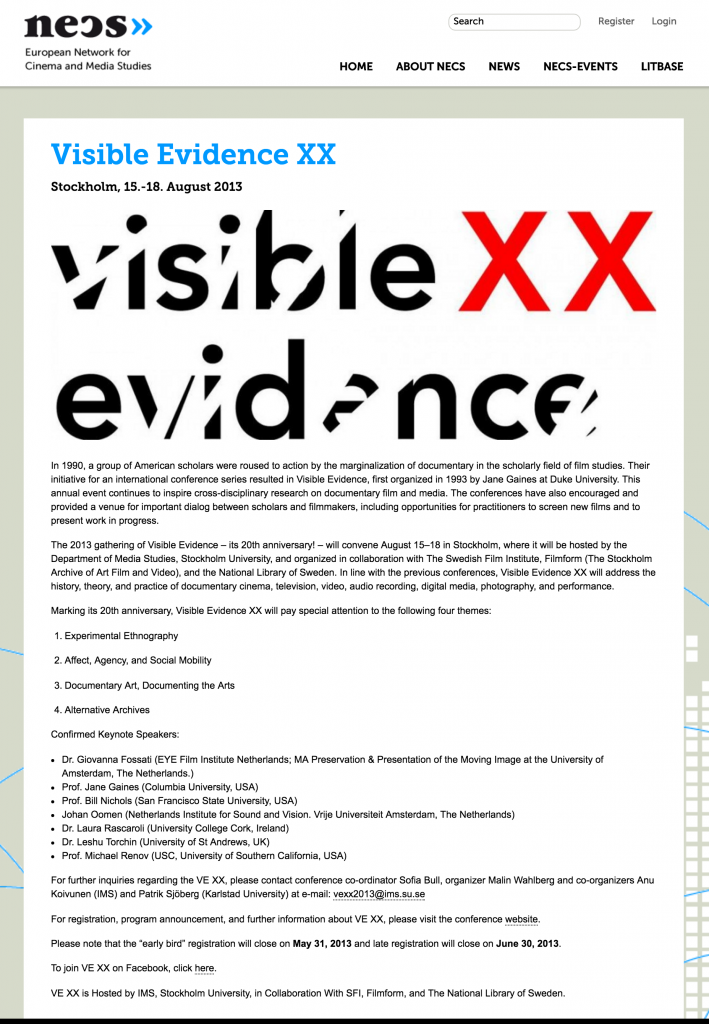
Pratap Rughani presents “Justine” at the 20th anniversary of the Visible Evidence conference.

| 2016 | (Upcoming) Melanie Manchot in conversation with Pratap Rughani, for Moving Image Research Art Journal (MIRAJ) |
| 2013 | John Akomfrah in conversation with Pratap Rughani for Vol 2.1, for Moving Image Research Art Journal (MIRAJ) |
| 2013 | Round Table, Ethnography and Documentary in the Avant-Garde for Vol 2.1,for Moving Image Research Art Journal (MIRAJ) |
| 2011 | Where Three Dreams Cross Review article for Photography & Culture Journal |
| 2004 | A Place Called Home, Art South Africa 3, no. 1 |
| 2004 | British Homeland, Essay in art catalogue A Place Called Home (British Council, South Africa). |
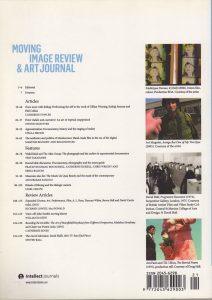
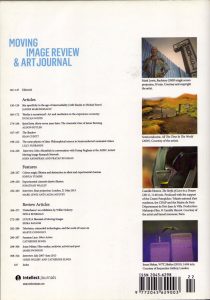
Are You a Vulture? Reflecting on the ethics and aesthetics of atrocity coverage and its aftermath Rughani, Pratap (2010). Book Chapter published in: Peace Journalism, War and Conflict Resolution Peter Lang : Oxford, pp 157 – 172.
This chapter is framed by a sequence of documentary still images raising practice-based research questions about the nature of photographic representation of atrocity. Photographs are accompanied by practitioner reflections following a photographic essay responding to a series of caste-based murders in Khairlanji village, Maharashtra, central India.
Read / download Chapter.
Remembering Khairlanji CAUTION: You may prefer not to look at the following slides of the murdered Bhotmange family. They are included to help contextualise reflections on ethical questions that follow.
Pratap Rughani reflects on the attempts at reconciliation in Australia and South Africa through the experience of filming with Nelson Mandela and Desmond Tutu.
Read The Pardoners’ Tale
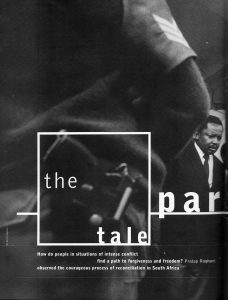
An Indian Affair reveals the hidden story of Britain’s relationship with India. Historian Maria Misra presents the remarkable tale of an affair that began with lust and matured into mutual respect, even love, until a new British desire to dominate locked the partners into an unequal and abusive marriage – the Raj.
Pratap Rughani co-directed Programme 2 Brief Encounter.
A Takeaway Media production for Channel 4 TV, 2001.
PROGRAMME 2 BRIEF ENCOUNTER. SYNOPSIS
They came as traders and left as rulers, but in between stands the biggest turnabout in the story of Britain and India; for a brief flicker of time the relationship confounded the stereotypes – a fusion culture was born.
PART 2
Back in England, Indo-mania took root. Indian clothes, fashion, music, literature and food… even bathing habits came under an Indian spell. The Prince Regent crowned it all with his Indian folly – the Brighton Pavilion. We chart the Indianisation of England, on a journey with the eighteenth century traveller and celebrity Abu Talib Khan.
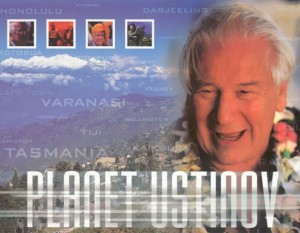 “To who it may concern,
“To who it may concern,
I must be mad – at my age – to embark on a journey like this. From Suva to Sydney; from the Kiribati islands to Cape Town (with a few Himalayan foothills in between). Totally mad. A century ago, Mark Twain had done the same – Following the Equator – and now I’m to follow in his faded footsteps. As a happy mongrel – with a British passport, and no British blood – I’m curious to know what makes other people belong; and to see how Twain’s world has changed.
They’ve told me it will be fun, and I believed them.
I must be mad.”
Pratap was Associate Producer of films 2 and 4.
If television is ‘dumbing down’ then no one has told Sir Peter. He remains substantial proof that it isn’t…The film was an antidote to the ‘have celeb will travel’ school of programme-making. Flying in the face of the seemingly widespread belief that travel programmes must be glamour-led, C4’s new four-part series replaced glitz and gloss with girth and gravitas…” James Rampton in The Independent on Sunday 29.11.98.
“This entertaining and illuminating four-parter is definitely a series to follow” The Daily Mail 23.11.98
“The politics is lightly worn, punctuated by the Ustinov repertoire of accents and funny accents, from a taxi horn to Scottish pipes” The Times